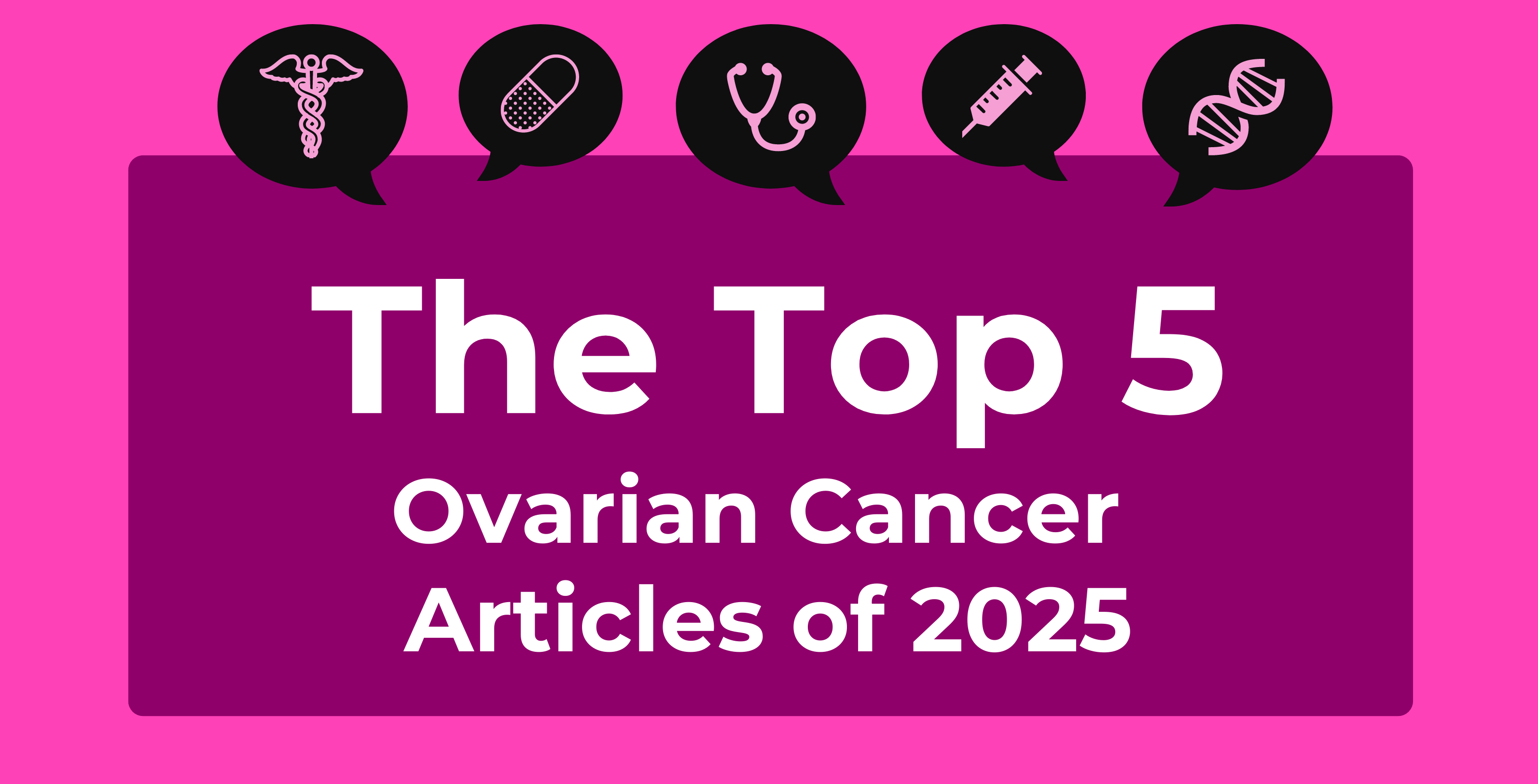
Ovarian Cancer
Latest News
Latest Videos

CME Content
More News

Over 50% of patients with high-grade serous ovarian cancer (HGSOC) had surgery, often decades before diagnosis, where salpingectomy could have reduced risk.

Mirvetuximab soravtansine, particularly in combination regimens, showed promising efficacy and an acceptable safety profile in recurrent ovarian cancer.

Secondary cytoreductive surgery plus hyperthermic intraperitoneal chemotherapy improves overall survival in platinum-sensitive recurrent ovarian cancer.

Long-term nitrogen dioxide exposure raises ovarian cancer risk, underscoring the need for stricter air quality measures.

Global ovarian and uterine cancer cases due to high BMI have risen sharply over the past 30 years, especially in low- to middle-income sociodemoraphic regions.

Raludotatug deruxtecan demonstrates antitumor activity and manageable safety in platinum-resistant ovarian cancer.

Multidrug combinations may counteract the role of cytokines in drug resistance, a new review article explains.

Tumor-first multigene testing boosts diagnostic accuracy, minimizes duplication, and aligns with professional society recommendations for integrated sequencing.

Persistent racial, ethnic, and socioeconomic disparities affect the incidence and mortality of major female-specific cancers in the US.

Surgeons are more likely to perform opportunistic salpingectomy when their peers have done so, underscoring the impact of physician networks in ovarian cancer prevention.

Raludotatug deruxtecan (R-DXd) earned FDA breakthrough designation for CDH6-expressing platinum-resistant ovarian cancers after bevacizumab (Avastin; Genentech) treatment.

Increased use of neoadjuvant chemotherapy (NACT) with interval debulking surgery has changed surgical practice patterns, improving complete resection rates and reducing postoperative complications.

Ovarian and uterine cancers linked to high body mass index (BMI) have steadily increased among women of reproductive age, with the greatest burden observed in low- and middle-sociodemographic index regions.

Patients with ovarian cancer who undergo BRCA testing face higher health care resource utilization (HCRU) and costs but are more likely to receive genomically targeted therapies and progress to later lines of treatment (LOT).

Ovarian cancer deaths remain uneven across age, geography, and racial and ethnic groups, highlighting the need for targeted interventions.

Neoadjuvant chemotherapy followed by interval cytoreductive surgery significantly improves survival rates in patients with advanced ovarian cancer compared with chemotherapy alone.

Many patients later diagnosed with high-grade serous cancer had prior surgical or genetic testing opportunities that could have reduced their ovarian cancer risk, underscoring the need to expand opportunistic salpingectomy and preventive strategies.

High-volume cancer centers utilizing neoadjuvant chemotherapy (NACT) significantly reduce surgical mortality and enhance survival rates in patients with advanced ovarian cancer.

Higher social vulnerability in patients with ovarian cancer leads to longer treatment delays but earlier palliative care consultations, highlighting critical health disparities.

Fewer than half of eligible patients with advanced ovarian cancer receive first-line maintenance treatments, highlighting care gaps.

Long-term results from the phase 2 OVARIO trial (NCT03326193) highlight the effectiveness of niraparib plus bevacizumab as maintenance therapy in patients with advanced ovarian cancer.

Glucagon-like peptide-1 (GLP-1) receptor agonists significantly enhance overall survival in patients with ovarian cancer, offering a promising adjunct to traditional treatments.

US ovarian cancer mortality rates declined from 1999 to 2020, but significant disparities remain across age, race, and geographic regions, highlighting the need for targeted public health efforts.

An expert discusses how the biggest barriers to incorporating antibody-drug conjugates (ADCs) include lacking biomarker knowledge and how payer restrictions can be overcome through early biomarker testing, proper documentation of target expression levels, and following FDA or National Comprehensive Cancer Network (NCCN) guidelines to ensure patient access to appropriate therapies.

Mirvetuximab soravtansine continues to show efficacy and safety in the final analysis of the phase 2 PICCOLO study.













